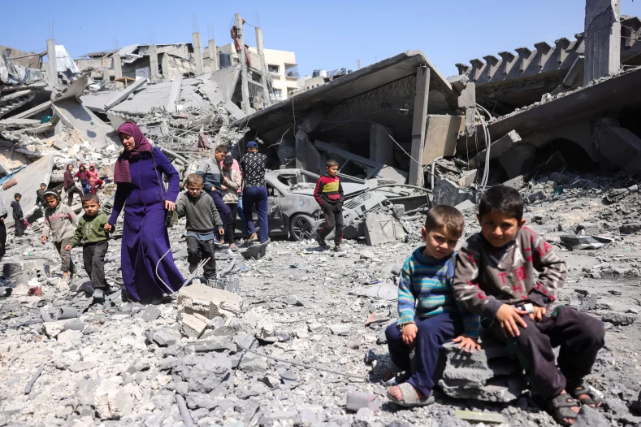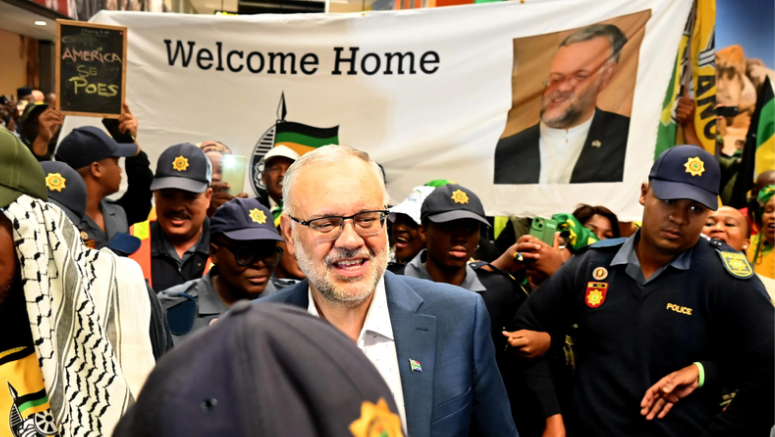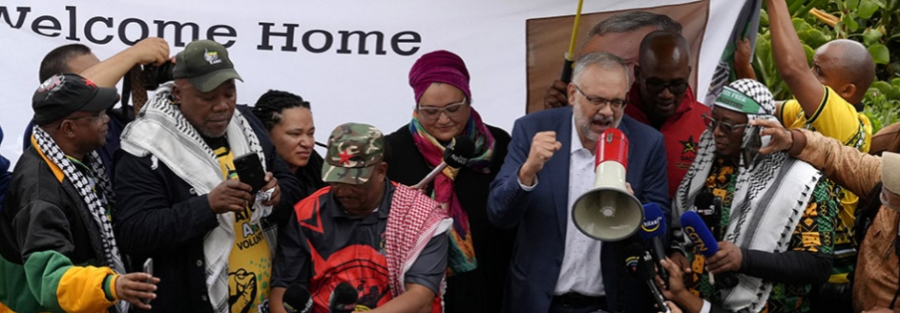South Africa’s Ambassador Ebrahim Rasool returned home to a hero’s welcome on March 24, 2025, after being expelled from the United States by the Trump administration. What was intended as a diplomatic rebuke turned into a moment of national pride, as thousands gathered at Cape Town International Airport to celebrate his return.
A Badge of Honor, Not Humiliation
The U.S. government’s decision to declare Rasool persona non grata—a move typically meant to disgrace a diplomat—had the opposite effect. As a massive crowd chanted and sang in support, Rasool addressed them through a megaphone:
“They wanted to humiliate me, but when you return to a welcome like this, it becomes a badge of dignity.”
His expulsion is the latest sign of the deepening rift between South Africa and the United States, fueled by tensions over U.S. support for Israel amid the Gaza war and Washington’s accusations against South Africa.
The Reason for Expulsion
Rasool was forced out following remarks made in a webinar where he analyzed former U.S. President Donald Trump’s “Make America Great Again” (MAGA) movement. He described it as a reaction to America’s changing demographics, pointing out that projections show the U.S. electorate becoming 48% white in the coming years.
His analysis was swiftly condemned by U.S. Secretary of State Marco Rubio, who labeled it race-baiting and announced Rasool’s expulsion in a social media post, calling him a “politician who despises America.”
Despite the fallout, Rasool stood by his words, clarifying that his comments were a political analysis, not an attack.
“This is not the U.S. of Obama or Clinton—it is a different U.S.,” he told supporters. “And our language must reflect that.”
The Bigger Picture: U.S.-South Africa Tensions
Rasool’s expulsion is just one part of a worsening diplomatic standoff. The Trump administration has also cut financial aid to South Africa, claiming that the country is supporting Hamas and Iran and implementing anti-white policies.
A major casualty of this funding cut is PEPFAR, the U.S. President’s Emergency Plan for AIDS Relief. Experts warn that its withdrawal could lead to millions being reinfected with HIV/AIDS and disrupt crucial vaccine research.
“These are the dangerous consequences,” Rasool cautioned. “We must either mend our relationship or prepare for a tough four years.”
South Africa’s ICJ Case Against Israel Adds Fuel to the Fire
Tensions escalated further when South Africa took Israel to the International Court of Justice (ICJ), accusing it of committing genocide in Gaza. The case has been backed by over ten countries, enraging Washington, which now views South Africa as hostile to U.S. interests.
Despite U.S. pressure, Rasool refused to back down, saying:
“We cannot abandon the Palestinians. But we will also not give up on our relationship with the U.S. We must fight for it—without losing our dignity.”
The Trump administration has since issued a list of demands to repair ties, including:
🔹 Repealing the Expropriation Act
🔹 Withdrawing from the ICJ case against Israel
🔹 Cutting ties with Iran
Many in South Africa see these as an attempt to dictate national policy, sparking fierce debate over whether to comply.
What’s at Stake?
Beyond diplomacy, economic stability is on the line. The African Growth and Opportunity Act (AGOA), which provides South Africa with access to U.S. markets, could be jeopardized if relations deteriorate further.
Some argue that cooperating with U.S. demands is necessary to protect South African jobs, while others warn that it would set a dangerous precedent.
“If South Africa concedes its moral standpoint, will it still have the strong economic ties it expects? Probably not,” political analyst Hunter observed.

Gaza War and U.S. Support for Israel
The Gaza war has now lasted 533 days, with over 50,000 dead, 113,000 wounded, and 11,000 still missing.
Despite global outrage, the U.S. continues to arm Israel, providing billions in military aid. South Africa’s ICJ case is an attempt to hold Israel accountable for genocide, a move the U.S. has fiercely opposed.
Rasool made it clear that South Africa’s role in the case was crucial:
“If South Africa was not at the ICJ, Israel would not be exposed, and the Palestinians would have no hope.”
Defiance, Not Defeat
Despite being expelled, Rasool returned to South Africa stronger than ever. His homecoming was not marked by shame, but by resistance.
“We are not anti-American,” he told the crowd. “We are not here to throw away our interests with the U.S. But we also will not be bullied.”
The message from Cape Town was clear: South Africa may be willing to mend ties—but not at the cost of its values.
Credits: American Muslim Today






